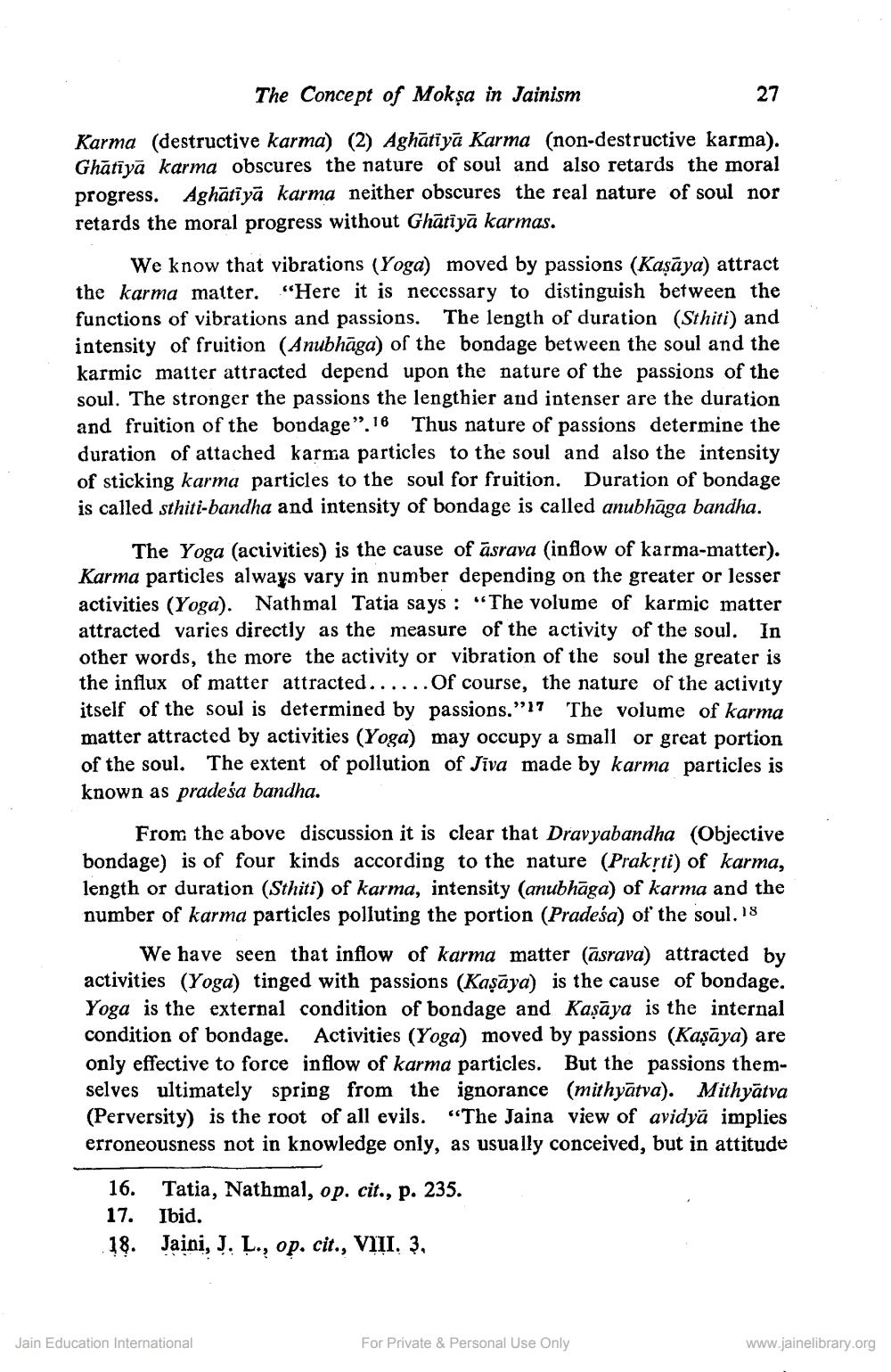________________
The Concept of Moksa in Jainism
27
Karma (destructive karma) (2) Aghātiya Karma (non-destructive karma). Ghātīyā karma obscures the nature of soul and also retards the moral progress. Aghāti ya karma neither obscures the real nature of soul nor retards the moral progress without Ghātīyā karmas.
We know that vibrations (Yoga) moved by passions (Kaşāya) attract the karma matter. "Here it is necessary to distinguish between the functions of vibrations and passions. The length of duration (Sthiti) and intensity of fruition (Anubhāga) of the bondage between the soul and the karmic matter attracted depend upon the nature of the passions of the soul. The stronger the passions the lengthier and intenser are the duration and fruition of the bondage". 16 Thus nature of passions determine the duration of attached karma particles to the soul and also the intensity of sticking karma particles to the soul for fruition. Duration of bondage is called sthiti-bandha and intensity of bondage is called anubhāga bandha.
The Yoga (activities) is the cause of asrava (inflow of karma-matter). Karma particles always vary in number depending on the greater or lesser activities (Yoga). Nathmal Tatia says: "The volume of karmic matter attracted varies directly as the measure of the activity of the soul. In other words, the more the activity or vibration of the soul the greater is the influx of matter attracted.. ....Of course, the nature of the activity itself of the soul is determined by passions."17 "The volume of karma matter attracted by activities (Yoga) may occupy a small or great portion of the soul. The extent of pollution of Jiva made by karma particles is known as pradeśa bandha.
From the above discussion it is clear that Dravyabandha (Objective bondage) is of four kinds according to the nature (Prakrti) of karma, length or duration (Sthiti) of karma, intensity (anubhāga) of karma and the number of karma particles polluting the portion (Pradeśa) of the soul. 18
We have seen that inflow of karma matter (asrava) attracted by activities (Yoga) tinged with passions (Kaşaya) is the cause of bondage. Yoga is the external condition of bondage and Kaşāya is the internal condition of bondage. Activities (Yoga) moved by passions (Kaşāya) are only effective to force inflow of karma particles. But the passions them selves ultimately spring from the ignorance (mithyātva). Mithyātva (Perversity) is the root of all evils. "The Jaina view of avidyā implies erroneousness not in knowledge only, as usually conceived, but in attitude
16. Tatia, Nathmal, op. cit., p. 235. 17. Ibid. 1$. Jaini, J. L., op. cit., VIII. 3,
Jain Education International
For Private & Personal Use Only
www.jainelibrary.org




